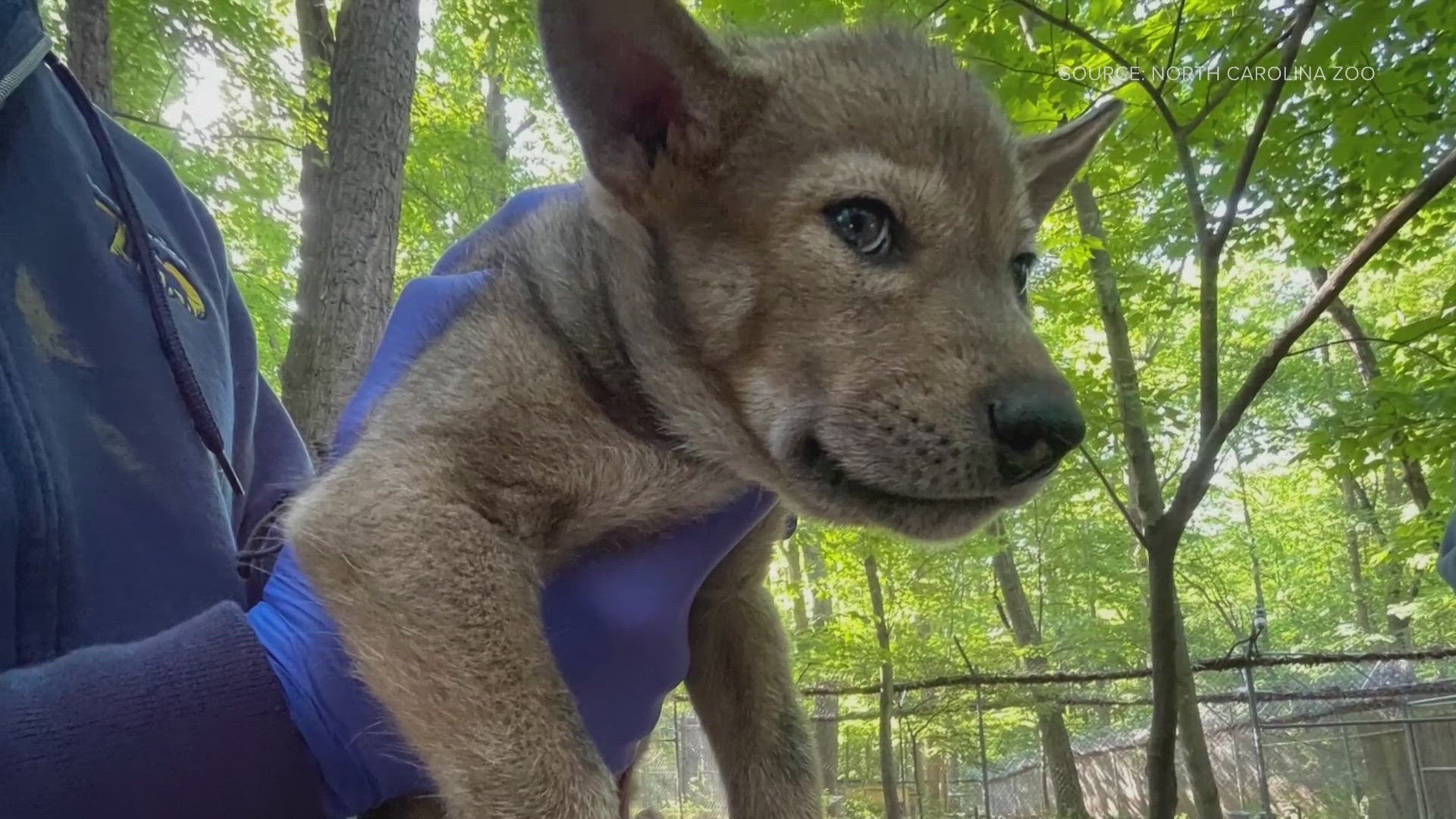ASHEBORO, N.C. — This past Easter, the North Carolina Zoo welcomed four red wolf pups into their pack.
“We've had red wolves at the zoo for going on 20, 25 years now. But the breeding program was started around 15 years ago, I believe, when we built five additional pens behind the scenes," said Animal Managment Supervisor, Curtis Malott.
Malott has been assisting in the progam since he arrived at the Zoo almost 10 years ago. Ever since then, he's been putting his heart and soul into the conservation effort, because the red wolf's survival is currently at critical.
"They're considered the most endangered candid in the world, there's only about 20 to 25 left in the wild, and in total, there's right around 300," declared Malott.
With a significant bulk of the population scattered in Zoos across the United States, the red wolf population has been consistently on the verge of extinction and in 1980 they were declared extinct in the wild.
"The last 13 known individuals were actually pulled by the Fish and Wildlife [Service] brought into a zoo to start the breeding program to kind of reestablish that species," said Malott.
“There were almost over a hundred individuals in the wild at one point but more recently threats like illegal killings of red wolves and also road collisions," added the zoo's Curator of Conservation Research, Corinne Kendall.
Now, North Carolina is the only state where red wolves currently exist in the wild – just off the coast in a location called Alligator River National Wildlife Refuge.
“I just think red wolves are you know they should be a species of state pride. You know we are very fortunate to have this unique wolf living in our state and you know it's a really interesting conservation story," said Kendall.
And for these conservationists and the North Carolina Zoo as a whole, that’s the reason, celebrate this litter of pups, it’s a hopeful mark for the red wolf's story in the wild.
"If we can get to that point where Fish & Wildlife [Program] doesn't need the zoo population anymore to sustain them out in the wild, that's the end goal," said Malott.

